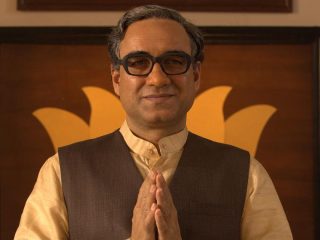The most basic component of a film is the story, which is often reflective of a character or society. Almost all times, these stories are inspired or adapted from pre-existing stories and events and even literature as numerous plays, short stories and even novels have inspired the plots of many legendary films. That being said, William Shakespeare, one of the greatest playwrights and poets in the realm of English literature, has influenced masses with his tragic plays and beautiful sonnets so much so that his works continue to outlive him in the form of adaptations.
However, adaptations can be very tricky for filmmakers as they must live up to the expectations set by the previous work keeping its essence intact while also presenting their unique style. Moreover, while dealing with something as complex as a Shakespearean rendition, filmmakers often fail to deliver the essence of the legendary playwright. Yet there are filmmakers like Vishal Bhardwaj, who has put the Shakespearean plays into the Indian context in order to keep them relevant to the Indian audience which has worked well for him.
Maqbool, Omkara and Haider, adapted from the three Shakespearean plays Macbeth, Othello and Hamlet, are popularly known as the tragic ‘trilogy of Vishal Bhardwaj’. The filmmaker-composer has judiciously worked upon the Shakespearean themes of love and betrayal and put them into the backdrop of Indian context making a 16th century English playwright relevant to the 21st century Indian audience.
As Maqbool follows the steps of Macbeth dealing with loyalty, guilt and fate, it is set in the backdrop of the Bombay mafia, thus also deals with contemporary Indian issues like corruption, influence of power as well as masculinity. While Macbeth and his hunger for power consumes his entire world, Maqbool also becomes aloof in his tragic end of authority as his world crumbles down in his pursuit of power.
As a matter of fact, Omkara resonates to Othello than any other adaptation does to its counterpart in the trilogy. A tragic love story resultant of greed, jealousy and manipulation is conditioned according to the Indian psyche while it questions the victimisation of women in a patriarchal set up where the men rule and women follow. Vishal Bhardwaj subtly touches upon the topic insecurity among Indian men with respect to each other both in terms of power as well as their authority over women.
As for Haider, Bhardwaj skilfully used the politicised state of Kashmir to effectively portray the Shakespearean themes of sexuality, family and identity while simultaneously throwing light on the deteriorating condition of the state and its people due to the self-serving politics of power between the government as well as the army. Without making a political statement, he has aggrieved the condition of the compromised land that calls for help as it slowly becomes a graveyard as Haider declares, “all that remains is dust.” Touching upon the psychoanalytical approach of oedipal complex, Bhardwaj analyses and critiques the traditional and sacred role of a mother that puts her on a pedestal as an ideal of purity, devoid of any malice.
While Shakespeare may not have been essentially a feminist and gave a stereotypical character to his heroines with a tragic ending. Bhardwaj may not have entirely deviated from this by putting his tragic heroines within a feminist perspective whereby critiquing the patriarchal society and values dominating the Indian background. His heroines are not black or white, but grey characters, much like the tragic heroes, amounting to yet another Shakespearean attribute.
In his most recent Netflix feature Khufiya, Vishal Bhardwaj has made a reference to famous Shakespearean play Julius Caesar possibly hinting to a colossal betrayal in the film. If not entirely inspired by the English playwright, we can possibly hope for tribute to him through this. In any case, one can assume that as issues persist, they remain universal in some sense yet are conditioned according to the contemporary and traditional values and belief systems. Vishal Bhardwaj has been successful in his portrayal of these universal themes by setting them in the Indian context which only articulates the proficiency of his art of storytelling.











